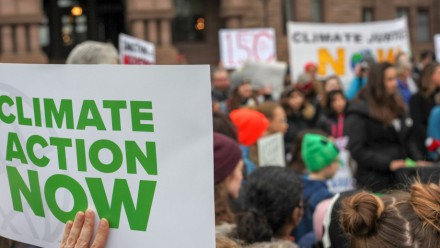Strong support for climate action among Australian voters
The vast majority of Australian voters support climate action, but their degree of support varies significantly across political divides, a new study shows.
The survey examined the views of more than 2,000 Australian voters.
More than 80 per cent of those surveyed said they think it's important for Australia to reduce greenhouse gas emissions.
This includes close to 70 per cent of conservative voters (those voting for Coalition parties).
According to lead author Dr Bec Colvin, stark differences emerge when you delve into just how important voters think it is.
"For example, 73 per cent of those voting for the ALP or the Greens see Australian action to reduce emissions as extremely important, while only one quarter, 26 per cent, of conservative voters think it's extremely important," she said.
The study, co-authored by Professor Frank Jotzo, also looked into whether voters were willing to accept a personal cost to support climate action.
A majority of voters - 72 per cent - would be willing to incur some personal cost in return for emission reductions.
But while 26 per cent of progressive voters are willing to incur a significant personal cost, only 5 per cent of conservative voters feel similarly.
"This tells us support for strong climate policy action may be limited by voters' preparedness to incur personal costs, especially among conservative voters," Dr Colvin said.
"About half of Australian voters also reported that climate change was important when deciding their vote in the 2019 federal election. But it was the most important issue for just 14 per cent of voters.
"So while 2019 election was sometimes billed as the 'climate election', in reality it probably was not."
The study found younger people were more likely than older people to consider a reduction in greenhouse gas emissions important. They were also more willing to incur personal costs and to consider climate change when voting.
"It's simple, if Australian political leaders pursued stronger climate action, they could rest assured the majority of the voting population is likely to broadly support this," Dr Colvin said.
"This will only become more pronounced with gradual generational change."
The study has been published in PLOS One.











